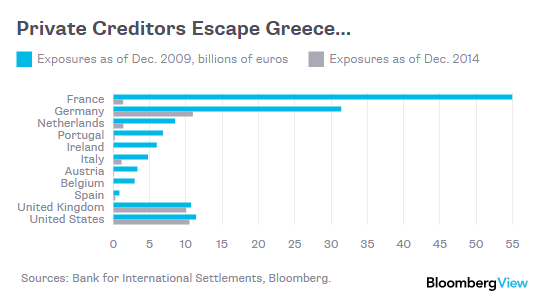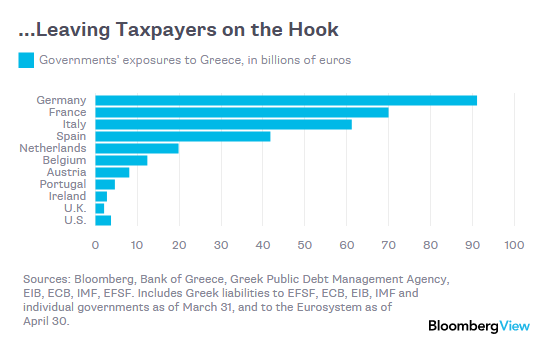Re: Does Greece need China?
we need to distinguish between the EU [european union] and the eurozone [countries that use the euro as their currency]. the latter is a subset of the former. greece could leave the eurozone without leaving the eu.
we need to distinguish between the EU [european union] and the eurozone [countries that use the euro as their currency]. the latter is a subset of the former. greece could leave the eurozone without leaving the eu.



Comment